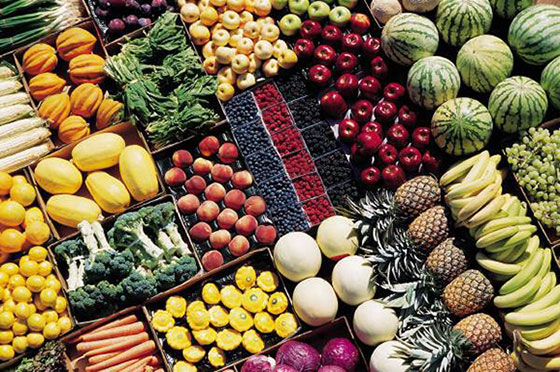🍓 Why Eating Seasonal Fruits Is a Smart (and Tasty) Choice
Ever noticed how juicy mangoes are only around in summer, or how oranges shine in winter?
Nature knows what your body needs, and seasonal fruits are designed to give exactly that, when you need it the most.
In today’s world of cold storage and imports, we often forget that eating with the seasons is not just traditional, but incredibly beneficial for health, the environment, and even your wallet.
Here are the top 5 reasons why eating seasonal fruits should be a habit you stick to all year round:
✅ 1. Richer in Nutrients 🥗
Seasonal fruits are harvested at their natural peak, meaning:
Maximum sunlight = higher vitamin content
Less transportation/storage = fewer nutrients lost
Fully ripened = better antioxidant levels
For example:
Summer mangoes are rich in vitamin A & C (great for skin and immunity)
Winter oranges offer a vitamin C boost right when colds are common
🧠 Eating out-of-season often means eating produce that’s picked early, stored long, and nutrient-depleted.
✅ 2. Better for Digestion 🌿
Your digestive system works in sync with the seasons.
Summer fruits like watermelon, mango, and lychee cool the body and hydrate
Winter fruits like guava and citrus are warming and fibre-rich
Monsoon fruits like jamun or pears help prevent infections
Eating seasonally keeps your gut balanced, avoids bloating, and supports smoother digestion.
"When you eat with nature, your body flows better."
✅ 3. Boosts Immunity Naturally 🛡️
Each season brings different challenges—heat, cold, allergies, infections—and fruits offer targeted nutritional defence.
Examples:
Jamun (summer) controls blood sugar and boosts liver function
Custard apple (autumn) builds immunity and supports respiratory health
Pomegranates (fall) are great for iron, stamina, and skin
🍎 The more variety of seasonal fruits you eat, the broader your nutrient intake, and the stronger your immune system becomes.
✅ 4. More Flavorful and Budget-Friendly 💸
Let’s be honest—in-season fruits taste way better.
Why?
They ripen naturally on the tree or vine
They don’t need artificial ripening agents or wax coatings
They’re sold fresh and close to harvest
And bonus:
Seasonal = local = cheaper.
You’re not paying for international shipping or refrigeration costs.
🥭 A mango in May tastes heavenly and costs ₹50. A mango in December? Tasteless and ₹250.
✅ 5. Environmentally Friendly 🌍
Eating seasonally supports:
Local farmers and communities
Reduced carbon footprint (no long-distance shipping)
Less energy waste (no cold storage, minimal packaging)
When you eat seasonally, you’re not just nourishing yourself—you’re making a sustainable choice for the planet.
🌱 Healthy for you = healthy for the Earth.
🧾 Quick Tip: How to Know What’s in Season?
Here’s a simple guide:
| Season | Fruits to Focus On |
|---|---|
| Summer | Mango, Watermelon, Litchi, Papaya |
| Rainy | Pear, Plum, Jamun, Chikoo |
| Winter | Orange, Guava, Pomegranate, Apple |
| Spring | Banana, Grapes, Kiwi, Strawberry |
🛍️ Shop at local fruit markets or farmers’ stalls—they usually carry the freshest, most seasonal options.
✨ Final Thoughts: Eat Fresh, Feel Your Best
In a world full of packaged snacks and synthetic supplements, seasonal fruits are nature’s purest gift.
They’re fresh, flavorful, and functional, supporting your health in every way.
“Eat with the season, and your body will always be in balance.”
So the next time you're buying fruits, skip the imported strawberries and go for what's fresh and local. Your body (and wallet) will thank you!
Disclaimer: This article is for informational purposes only and does not constitute professional advice. Read our full Disclaimer.












Recent Comments
No comments yet.